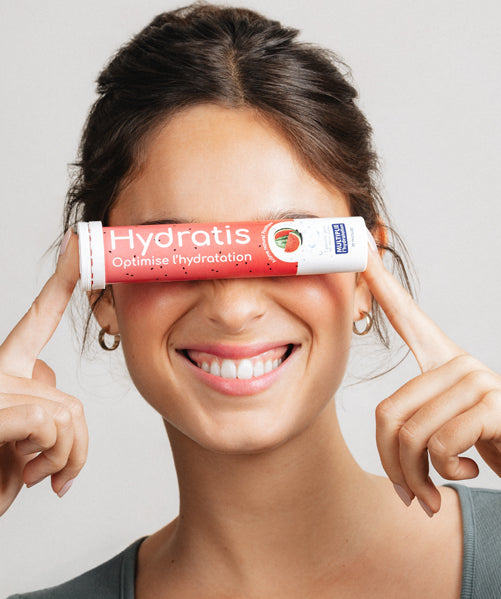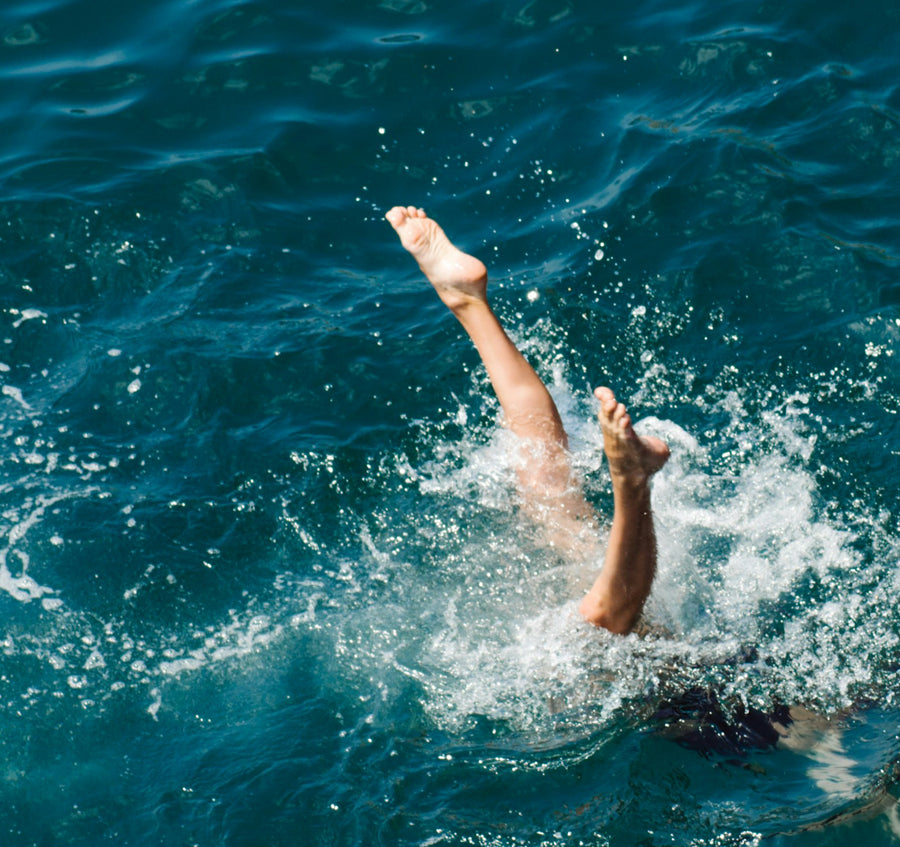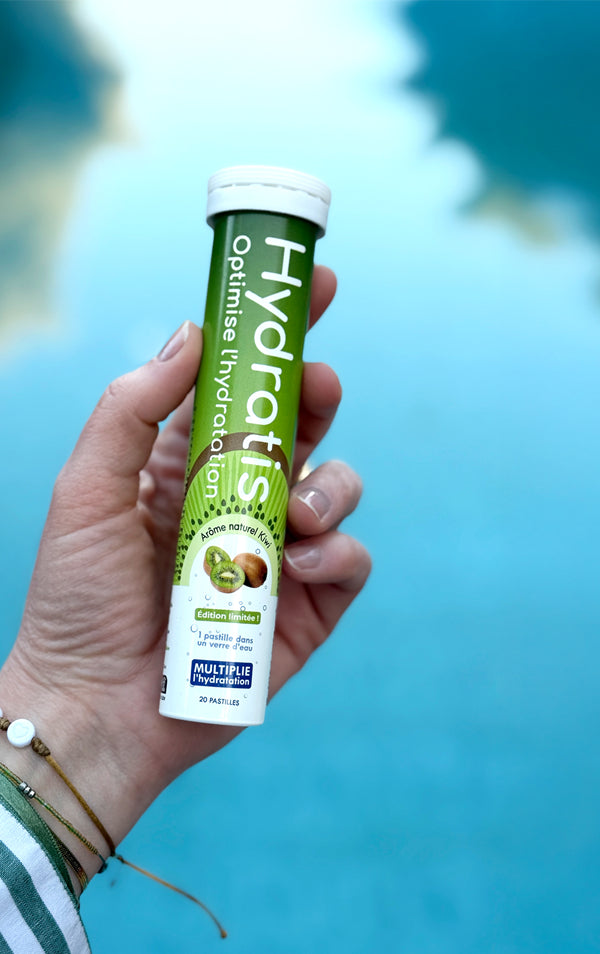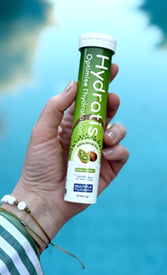Migraines are one of the most common neurological conditions , affecting nearly one in seven people worldwide. They can seriously impair quality of life. Many triggers can contribute to the onset or intensity of a migraine attack, one of which is particularly overlooked : dehydration .
If you've ever experienced a headache after exertion or forgetting to drink , you've likely encountered what's known as a dehydration headache. This phenomenon is, however, preventable, provided you understand its causes, symptoms, treatments, and preventative measures.
Migraine and headaches related to dehydration: what are the symptoms?
What are dehydration headaches?
Dehydration corresponds to a deficiency of water and electrolytes ( sodium, potassium, chloride, magnesium ) in the body. These elements are essential for proper metabolic function, nutrient transport, thermoregulation, nerve transmission, and waste elimination.
Water makes up about 60% of an adult's body weight . This percentage obviously varies depending on sex, age, and muscle mass. When fluid intake is insufficient, or when losses (through perspiration, diarrhea , vomiting , fever, or rapid breathing) are not replenished, the body sends out an alarm signal.
One of the signals sent is a headache , often manifesting as pain localized to the front of the skull or across the entire head. This is accompanied by a feeling of heaviness , fatigue , and sometimes hypersensitivity to light (photophobia) or sound (phonophobia). This type of headache is therefore a warning symptom that the brain uses to signal a fluid imbalance .

Can dehydration cause headaches?
In any case, there is no single, direct link between dehydration and headaches , but numerous studies show that dehydration worsens existing conditions . In particular, it plays a role in amplifying primary headaches such as migraines or tension headaches by disrupting the balance of intracranial fluids.
Experts acknowledge that hydration status influences the frequency, intensity, and duration of migraines in some individuals. A recent study (Arca & Halker Singh, 2021) suggests that hydration improves symptoms in patients with recurrent headaches. However, it's important to remember that pain relief doesn't always occur immediately after drinking; it can sometimes take several hours for the body to restore its fluid balance .
How does dehydration trigger headaches?
When the body lacks water , blood volume decreases (hypovolemia) , thus reducing blood flow to the brain. This phenomenon can lead to compensatory vasodilation , which in turn causes the throbbing pain typical of migraines.
Furthermore, dehydration disrupts the transport of electrolytes involved in neuronal excitability. The result is cerebral hyperexcitability , which can be triggered more easily, thus promoting migraine attacks. This is exacerbated by fatigue , lethargy , and sometimes digestive problems associated with dehydration, such as nausea and vomiting, which further intensify the discomfort.
How to prevent dehydration headaches?
Maintain good daily hydration
Prevention relies primarily on regular water consumption . Indeed, an adult should drink on average between 1.6 L and 2 L of water per day , adjusting according to their physical activity, the outside temperature, or their diet.
In addition to water, solutions containing electrolytes can be helpful in cases of excessive sweating, during episodes of fever, or after prolonged physical activity . These solutions facilitate bodily hydration through the sodium-glucose co-transport mechanism.
Recognizing the warning signs
Simple signs can indicate the onset of dehydration : dry mouth, sudden fatigue , difficulty concentrating, dark or infrequent urine . Paying attention to these signs allows you to intervene before pain develops.
Simple tips to adopt

In addition to proper hydration, certain actions can relieve or reduce headaches :
- Massage the temples and forehead , with or without essential oil (peppermint, lavender)
- Isolate yourself in a dark room , away from visual and auditory stimuli.
- Drink an infusion such as chamomile or ginger
- Soaking your feet in warm water improves peripheral circulation
- Reduce screen time and lower ambient light
-
Getting enough sleep: lack of sleep is a well-known trigger for migraines.
These approaches do not replace medical treatment for severe migraines, but they help to limit episodes or alleviate symptoms.
What treatments are available to manage a migraine?
Migraine, a complex neurological condition
Migraine is a distinct disease. It is characterized by recurring attacks associated with unilateral, throbbing pain of moderate to severe intensity. It is often accompanied by nausea, vomiting, photophobia , and phonophobia .
Physiologically, a migraine attack begins with the activation of the trigeminal nerve , which innervates the face and meninges. This activation leads to the release of inflammatory neurotransmitters (such as CGRP), causing dilation of the meningeal arteries and painful local inflammation .
When should you consult a healthcare professional?
It is imperative to consult a doctor if:
- Your seizures become more frequent or more intense,
- The pain is resistant to usual treatments.
- You are experiencing unusual symptoms: fever, stiff neck, persistent visual disturbances, confusion, intractable vomiting.
A medical assessment will help to look for secondary causes (sinusitis, dental problems, hypertension, hormonal disorders, etc.) or aggravating factors such as chronic dehydration .
In summary: migraine, headaches, and dehydration
|
Element |
Key points to remember |
|
Symptoms |
Throbbing pain, fatigue, dark urine, dry mouth, nausea |
|
Common causes |
Lack of water, physical exertion, heat, fever, vomiting |
|
Pathophysiological effects |
Decreased blood volume, vasodilation, neuronal excitation |
|
Solutions |
Water, electrolyte drinks, herbal teas, sensory rest |
|
Prevention |
Regular hydration, sleep management, identification of triggers |
Dehydration , although often underestimated, plays a crucial role in the onset or worsening of migraines and headaches . By adopting good hydration habits , sensory awareness practices , and sleep management , it is possible to reduce the frequency and intensity of attacks .
Natural remedies and medications can provide temporary relief, but an approach that includes identifying the underlying causes , particularly hydration, remains essential. If you have any doubts, we recommend consulting a healthcare professional. to benefit from a complete diagnosis and personalized care.
Bibliography
Arca, KN, & Halker Singh, R.B. (2021). Dehydration and Headache. Current Pain and Headache Reports , 25, 56. https://doi.org/10.1007/s11916-021-00966-z
International Headache Society – ICHD-3 Criteria: Diagnosis of primary headaches. https://cephaleeclic.fr/p/cephalee-primaire-probable
Spigt, M. et al. (2012). Increased water intake reduces headache symptoms. Family Practice , 29(4), 370–375. https://pubmed.ncbi.nlm.nih.gov/22113647/
Mayo Clinic. (2023). Dehydration Headache: Symptoms, Causes, and Relief. https://urlr.me/qnHJNP






